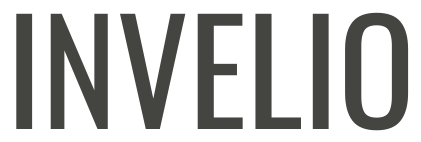The finance sector is rapidly embracing remote work, offering a range of opportunities from financial analysis to strategic planning, all from the comfort of home. Remote finance jobs are reshaping the industry, providing flexibility, competitive salaries, and a work-life balance previously unseen. This shift not only attracts top talent but also connects professionals with a global array of opportunities, making the financial career path more dynamic and accessible than ever.
Understanding Remote Finance Jobs
When it comes to Remote Finance Jobs, the landscape is diverse and growing. Here’s a breakdown to give you a clear view.
Types of Remote Finance Positions
The array of positions in the remote finance world includes roles like Financial Analyst, Finance Manager, Director of Finance, Associate, and VP of Finance. These positions cater to various aspects of financial oversight and strategy within a company. On the more technical side, you might find roles like Finance Business Partner, which requires a deep understanding of financial planning and analysis, budgeting, and compliance.
Required Qualifications
Typically, you’d need at least a bachelor’s degree in accounting or finance for most roles. Some positions might require professional accreditations like a CPA (Certified Public Accountant). Beyond education, a combination of experience in areas like reconciliations, payroll, bookkeeping, and mastery of Advanced Excel is often essential.
Common Responsibilities
I’ve found that in remote finance roles, responsibilities can include managing financial transactions, ensuring accurate financial planning and analysis, conducting budgeting activities, and maintaining compliance with financial regulations. Some roles may also involve handling payroll, bookkeeping, and carrying out reconciliations to ensure all financial activities are correctly recorded.
Key Technologies and Tools
Proficiency in various technologies is key in remote finance jobs. Familiarity with ERP (Enterprise Resource Planning) systems, cloud-based technologies, and advanced accounting software is critical for efficiency in remote work environments. These tools help manage and analyze large volumes of financial data and support collaboration across teams.
Entering the Remote Finance Workforce

I’ve noticed an uptick in remote finance jobs in recent years, a trend that shows no signs of slowing down. Launching a career in this dynamic field involves a blend of formal education, skill acquisition, and networking.
Educational Pathways
When I first considered entering the remote finance workforce, I knew that a bachelor’s degree in finance or a related field was essential. Many successful finance professionals begin with a solid foundation from institutions like the University of Arizona Global Campus, which offers relevant finance programs. The coursework often covers financial management, investment, and risk assessment, which are crucial competencies for remote finance roles.
Certifications and Skills
Along with a degree, certifications like the CPA (Certified Public Accountant) can make a candidate far more competitive. I’ve also realized that skills such as advanced Excel are non-negotiable – they’re the bread and butter for tasks like data analysis and financial modeling. A Financial Aid Certification Processor qualification can also be beneficial for those pursuing opportunities in finance-adjacent roles that deal with student loans and university finances.
Building a Professional Network
Lastly, networks matter. I’ve spent quite a bit of time on platforms like LinkedIn connecting with fellow finance professionals. It’s not merely about having a presence; it’s the engagement – joining finance groups, participating in discussions, and sharing insights – that has opened doors to remote opportunities for me. The online finance community is vast, and establishing a strong network is key to finding and securing remote finance jobs.
Finding Remote Finance Jobs

I’ve learned that securing remote finance jobs requires a blend of updated strategies, networking, and a careful approach to job listings. Let’s dive in and see how you can navigate this job market effectively.
Job Search Platforms and Strategies
When on the hunt for remote finance jobs, it’s essential to utilize online job boards that cater to this niche. Websites like ZipRecruiter and Indeed offer a wide range of listings and make it convenient to filter for remote opportunities. It’s also helpful to set up job alerts to keep you informed about the latest postings. Remember, consistency is key, so I make it a daily habit to check these platforms.
- Use Dedicated Filters: On platforms like LinkedIn, use the ‘remote’ filter when searching to tailor results specifically for remote finance opportunities.
- Set Up Alerts: Ensure you’re the first to know about new openings by setting up job alerts.
- Daily Checks: Regularly visiting job boards can increase the chances of finding fresh listings.
Leveraging Professional Networking
My personal experience underscores the power of professional networking in landing a great remote job. LinkedIn is a formidable resource here, serving not just as a job board but as a platform for building connections within the finance industry. Engage with content, join groups, and nurture relationships that could lead to job referrals.
- Engage on LinkedIn: Comment on posts, share insights and establish yourself as an active industry member.
- Connect with Others: Reach out to finance professionals and recruiters with personalized messages – a friendly approach can go a long way.
Evaluating Job Listings
When I come across a remote finance job listing that sparks my interest, I pay close attention to several important aspects. It’s crucial to assess the credibility of the employer and the specifics of the job role. I look out for clear job responsibilities, required qualifications, and any stated benefits, which should all be explicitly mentioned in the listing.
- Responsibilities and Qualifications: Look for clarity in what’s expected of you and what you need to bring to the table.
- Benefits: Take note of any benefits that are important to you, such as flexibility or professional development opportunities.
Evaluating Employment Types

When I consider the landscape of Remote Finance Jobs, I recognize that the employment types offered are as diverse as the roles themselves. This makes understanding the nuances between full-time, part-time, contract, and temporary positions essential, particularly when weighing on-site versus remote opportunities.
Full-time Versus Part-time
Full-time positions in finance often come with a range of benefits, including healthcare, retirement plans, and competitive compensation. My experience suggests full-time roles provide stability and often a clearer path for career advancement. In contrast, part-time roles can offer greater flexibility and work-life balance, which can be especially valuable if I’m juggling personal commitments or pursuing further education.
Contract and Temporary Positions
Moving to contract roles, these positions can offer a high degree of autonomy and the chance to negotiate rates that reflect my skills and experience. Although they may lack the traditional benefits of full-time employment, the trade-off is often worthwhile for the financial and professional independence they provide. Temporary positions serve as an excellent opportunity to experience different company cultures and functions, which can broaden my professional network and skill set.
On-site Versus Remote Work
Lastly, when evaluating on-site versus remote work, the latter has transformed the finance industry. While on-site jobs may facilitate closer team collaboration and mentoring opportunities, remote work offers unparalleled flexibility. Remote roles can be incredibly diverse, ranging from data entry and tax consultation to high-level financial analysis. Embracing remote finance jobs has allowed me to optimize my work-life balance without sacrificing career growth or compensation.
Working Remotely in Finance

The landscape of remote finance jobs is rapidly evolving, bringing with it a unique set of opportunities and considerations. I’ve embraced the change, finding that with the right setup and mindset, the transition to remote work can be smooth and even rewarding.
Setting Up a Home Office
One of the first steps I took was establishing a dedicated home office. Key elements include a comfortable chair, a desk with enough space for multiple monitors, and high-speed internet access to ensure seamless interaction with cloud-based financial systems. To maintain confidentiality and security, investing in a good shredder and setting up robust cybersecurity measures is a must.
Time Management and Discipline
Managing my time effectively has been crucial in my remote finance role. I structure my day with clear blocks of time for focus-intensive tasks, realizing the necessity for self-discipline outside a traditional office environment. Using technology such as digital calendars and task management tools helps me stay on track and meet important deadlines.
Advantages and Challenges of Remote Finance Work
The advantages of remote finance work are compelling: I’ve cut down on commuting, enjoyed increased flexibility, and contributed to a culture of diversity by collaborating with colleagues from different states. However, it also presents challenges such as staying motivated without in-person interaction and managing expectations with remote team members across various time zones.
State-Specific Considerations for Remote Work
Finally, it’s vital to recognize that state-specific regulations can affect remote finance jobs. Each state may have different tax implications and labor laws that impact remote agreements. I need to stay informed about these laws to ensure compliance and smooth operations in my remote finance role.
have a multitude of options, from corporate roles in Atlanta and Los Angeles to more policy-oriented roles in Washington, DC, and eco-conscious positions in Portland. Whether one is looking to work for established financial groups like Carpenter Financial Group or innovative services like Nordstrom Card Services Inc., the remote landscape is ripe with opportunity.
Advancement and Career Growth

In the world of remote finance jobs, I’ve observed a clear trajectory for professionals to move from initial roles up through leadership positions. It’s a path marked by key milestones such as promotions, skill development, and assuming greater responsibilities.
From Finance Associate to Finance Manager
Beginning my career as a finance associate, I focused on honing my analytical and technical skills. The switch to a finance manager role typically involves a more profound understanding of financial reporting, budgeting, and forecasting. Effective communication and a knack for strategic thinking are essential for associates aiming to move up.
Leadership Roles in Finance
Climbing the ladder, I noticed the progression from manager to director or VP of Finance. These roles require not just financial acumen but also strong leadership to steer departmental goals. Being a head of finance in a remote setting demands proficiency in digital tools for collaboration and decision-making.
Continuous Learning and Development
Continuous professional development has been my cornerstone in adapting to the dynamic finance sector. Up-to-date knowledge of financial regulations, advanced certifications, and a commitment to lifelong learning are pivotal. They prepare me for the challenges of complex financial strategies and global market trends.
Compensation and Benefits

When I first ventured into remote finance jobs, I quickly realized that understanding the compensation and benefits package was crucial. These details play a pivotal role in job satisfaction and can greatly influence your financial planning and overall well-being.
Understanding Compensation Structures
Remote finance jobs offer a variety of compensation structures, and it’s imperative to comprehend each element. My salary, for instance, might be a mix of a base salary, bonuses, and perhaps equity or stock options. I’ve seen positions where competitive compensation is tied to company performance, which motivates me to contribute to the overall success.
Negotiating Salaries and Raises
When it comes to negotiating salaries and raises in remote finance positions, I advise being well-prepared with industry-standard figures. This means being armed with data on average salaries for similar roles and an understanding of my value. It often helps to highlight my skills and accomplishments, and for big milestones, I’ve occasionally leveraged job listings to support my case for a raise.
Health and Insurance Benefits
Health and insurance benefits are a significant part of the compensation package. I always make sure to assess the health insurance plans carefully to ensure comprehensive coverage. It’s a relief to have expenses like medical, dental, and vision insurance taken care of, which can be a burden if not provided.
Retirement and Long-Term Benefits
Lastly, retirement and long-term benefits such as 401(k) plans with employer matching, or other pension plans, are key factors for me. Ensuring that I have a plan in place that contributes to my future financial stability allows me to focus on my current work without worrying about my financial security in later years. I often check if remote positions include these long-term perks to make an informed decision about my job offers.
Performance Metrics and Expectations
In remote finance jobs, I must stay on task and be mindful of the performance metrics and expectations set by my employer. These not only guide day-to-day activities but also influence long-term career growth.
KPIs and Performance Reviews
Key performance indicators (KPIs) serve as the backbone for evaluating my success in a remote finance role. Consistent monitoring of KPIs like the accuracy of financial forecasts, variance analysis, and cash flow management is pivotal. During performance reviews, these metrics help determine if I’ve hit my targets, providing a clear view of my accomplishments and areas for improvement.
Role of FP&A in Strategic Planning
My role in financial planning and analysis (FP&A) is to support strategic planning by interpreting financial data to inform decision-makers. A critical responsibility I have is to create and manage budgets, ensuring optimal allocation of resources while predicting future financial trends that align with the company’s goals.
Advancing Financial Analysis Skills
To remain competitive as a financial analyst in the remote work landscape, I make it my mission to continuously refine my skills. Staying up-to-date with the latest financial services, technology, and industry best practices allows me to provide more insightful financial aid and advisory services. Moreover, I focus on enhancing financial transaction analysis to drive efficiency and informed decision-making for my clients or company.
Corporate Culture and Remote Finance Work

In my experience, the culture of a company can profoundly impact the satisfaction and productivity of employees, and this holds for remote finance jobs. A supportive culture promotes work-life balance and fosters diversity and inclusion, which are essential for remote teams to thrive.
Promoting Work-Life Balance
In remote finance roles, I’ve noticed companies are placing a strong emphasis on work-life balance to prevent burnout. This involves setting clear expectations about work hours, encouraging employees to take regular breaks, and being flexible about scheduling. Many employees in remote finance jobs have the freedom to create their schedules, which helps them manage personal responsibilities alongside professional demands.
Diversity and Inclusion in Remote Teams
Diversity and inclusion are pillars of a strong remote working culture, and remote finance jobs are no exception. By recruiting talents from a wide array of backgrounds, companies enhance problem-solving and creativity. In my role, I ensure participation in training sessions focused on cultural competence, and I’ve seen companies establish policies and groups to support a diverse and inclusive workforce, making team members feel valued and acknowledged.
Communication and Team Building
Effective communication is the lifeline of remote work. To build a cohesive team, I practice and encourage constant and clear communication. Tools like video conferencing, instant messaging, and collaborative platforms are indispensable in maintaining connections among team members. Moreover, regular virtual team-building activities are organized, which I find invaluable in enhancing trust and camaraderie among colleagues in remote finance jobs.
Frequently Asked Questions
How to earn money remotely?
In the finance sector, earning money remotely can involve a variety of roles, such as financial analysis, consulting, or tax preparation. Companies are increasingly offering remote finance jobs that allow professionals to work from home or any location with an internet connection.
How can I work remotely?
To work remotely in finance, you generally need a combination of a relevant degree, experience in the field, and proficiency with financial software and tools. Employers often look for candidates who are self-motivated and can manage their time effectively without direct supervision.
What is a remote job?
A remote job is a position that does not require you to be physically present in an office or company location. For the finance industry, this could include roles like risk management, budget analysis, or financial planning. Essentially, you can perform tasks and communicate with colleagues and clients through digital means.
What are the typical salary ranges for remote finance positions?
Salaries for remote finance positions vary widely based on the role, experience level, and location. Entry-level positions may start at a modest wage, while experienced roles like financial analysts or managers can command significantly higher salaries. Sites like Glassdoor offer more specific insights on salary ranges in the remote finance field.
I hope you found some inspiration or useful tips in our article on ’remote finance jobs’! If so, I’d love to hear your thoughts and ideas in the comments below! And if you’re looking for more insightful content, don’t hesitate to explore our other articles:
- Budget Workshop Essentials: Planning Financial Success
- Budget Analyst Jobs: Career Opportunities In Finance
- How To Save $2000 In 2 Months: Your Starter Guide
- Financial Planning Month: Strategies for Smart Money Management
Your comments help us create better content for you. Happy reading!






